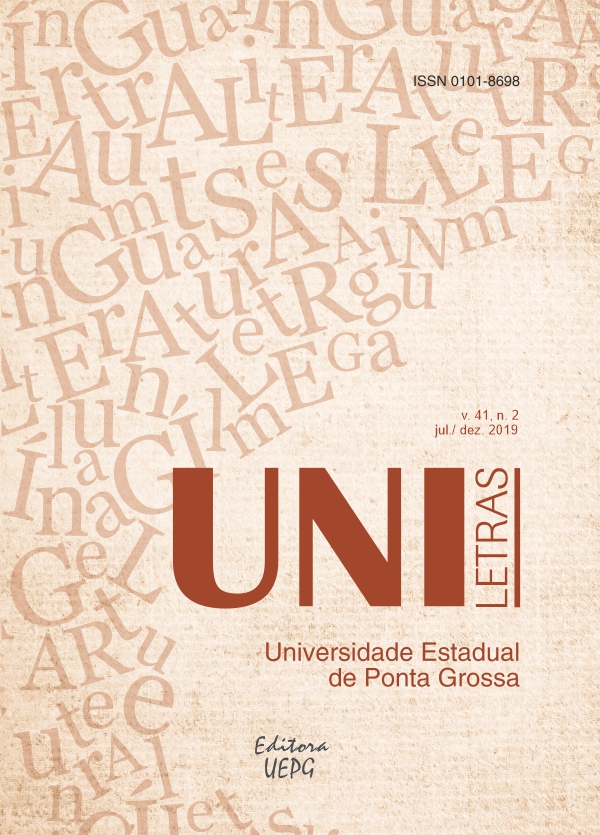AUTOBIOGRAPHICAL NARRATIVES: WHAT TEACHERS IN PONTA GROSSA MUNICIPAL NETWORK SAY ABOUT A TEACHING THAT PROMOTES CRITICAL RACIAL LITERACY
Abstract
This article is a part of the master's dissertation and aims to discuss the importance of teaching work in the (re) construction of children's racial identity, based on the use of pedagogical practices in a Critical Racial Literacy perspective. The research questions that we will answer are: Can the teachers understand, through the writing of autobiographical narratives, how children identify themselves racially and react to the other's racial identity in daily school life? Do these narratives help these teachers understand the importance of discussing race in the classroom from the perspective of Critical Racial Literacy? To answer these two questions, we start the discussion with a theoretical review about the topic and then present some reflections from the analysis of autobiographical narratives of three elementary school teachers from the municipal network of Ponta Grossa. Therefore, we consider authors such as: Ferreira (2014-2017), Silva and Dias (2016), Uwe (2009), Gomes (2005), among others. From this analysis, the results obtained in the teachers’ autobiographical narratives indicate that it is possible to find racist attitudes and discourses in the classroom, however, not always noticeable by the teacher. In this sense, autobiographical narratives contribute for the teacher to reflect about his classroom practice, the need to discuss about race and the importance of continuing education regarding racial issues, since the teacher-student interaction in a reflective way is one of the possibilities to combat racism.
Downloads
Downloads
Published
Issue
Section
License
Authors that publish in the journal agree with the following terms:
a) The authors keep the copyright and grant to the journal the rights of the first publication, with the work simultaneously being licensed under the Creative Commons Attribution License that allows the sharing of the work with the recognition both of the authorship and the initial publication in this journal.
b) This journal provides immediate public access to all of its content, following the principle that making scientific knowledge freely available to the public provides greater worldwide democratization of knowledge. For more information about this approach, visit Public Knowledge Project, a Project that developed this system to improve the academic and public quality of research, distributing OJS as well as other softwares to support the publication system to public/open access to academic sources. Names and e-mail addresses in this website will be used exclusively for this journal purposes, not being available for other ends.

This work is licensed under a Creative Commons Attribution 4.0 International License.





